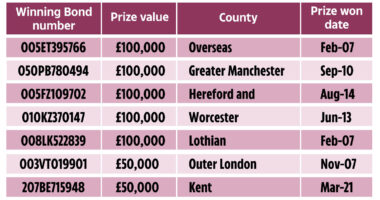PARENTS have just over a week to claim at least £1,152 a year but they have to move now or lose out.
Most parents in the UK are eligible to claim child benefit which can boost their incomes by £1,000’s ever year.
But parents and carers whose 16-year-olds are continuing in full-time education need to let the Government know before November 30 or their child benefit payments will stop.
Payments will automatically stop on your child’s 16th birthday if they leave education or training.
Parents though are usually sent a letter in their child’s last year at school asking to confirm their plans.
Education must be full-time (more than an average of 12 hours a week supervised study or course-related work experience) and can include:
Read More on Child Benefit
- A-levels or similar, for example Pre-U, International Baccalaureate
- T levels
- Scottish Highers
- NVQs and other vocational qualifications up to level 3
- home education – if it started before your child turned 16 or after 16 if they have special needs
- traineeships in England
Your child must be accepted onto the course before they turn 19.
Some families are also able apply for a child benefit extension when their children’s education or training comes to an end.
You could get child benefit for another 20 weeks if your child leaves approved education or training and either:
Most read in Money
- Registers with their local careers service, Connexions (or a similar organisation in Northern Ireland, the EU, Norway, Iceland or Liechtenstein)
- Signs up to join the armed forces
If you do miss the deadline, you can still claim for child benefit but bear in mind that your payments might be late.
How do I renew my child benefits?
You can either update your Child Benefit records via the government website gov.uk or return the 297b form that should have been sent to you by HMRC.
To use the online service, you need a Government Gateway user ID and password.
If you do not have a user ID, you can create one when you use the service.
Once you have notified HMRC you won’t need to continue to update it – unless your child’s situation changes.
Instead you will receive the payment until the end date of their course, or they reach the age of 20.
If your child enters work then you will stop receiving the benefit.
What is child benefit and who is eligible?
Child benefit is paid to parents to help with the costs of childcare.
Payments are usually made to you from the government every four weeks.
By claiming child benefit you also get National Insurance credits that count towards your state pension.
There are two different rates for child benefit.
Currently, parents can claim £24 per week for their first or only child – £96 a month and £1,248 a year.
For any additional children they can claim an extra £15.90 a week per child – £63.60 a month and £826.80 a year.
You normally qualify for child benefit if you live in the UK and are responsible for a child under 16.
But you can also claim the support for a child under 20 if they are in approved education or training.
When two or more people share the responsibility of caring for a child, it can only be claimed by one person.
You’ll be responsible for a child if you live with them or you are paying at least the same amount as child benefit towards looking after them.
This might mean you are paying the equivalent amount of child benefit on food, clothes or pocket money.
You should bear in mind, eligibility changes if a child goes into hospital or care and if your child starts to live with someone else.
Usually, you get child benefit for eight weeks after your child goes to live with a friend or relative – as long as they don’t make a claim.
But it can continue for longer if you make contributions to your child’s upkeep.
Foster parents can also claim child benefit, as long as the council is not paying anything towards their accommodation or maintenance.
Legal guardians or parents adopting a child can also apply for the benefit, but the child has to be living with them.
You will only be able to claim for a short period of time if you leave the UK, for example if you go on holiday or for medical treatment.
For anyone not sure about eligibility, you can contact the Child Benefit Office.
What is the high income child benefit charge?
If either parent or carer starts earning over £50,000, they have to start paying the high income child benefit charge.
This means you have to pay back 1 per cent of your child benefit for every £100 of income earned over the £50,000 threshold.
Once you reach £60,000 of yearly income you have to repay the full amount of child benefit received.
Parents have been caught out by the complicated rules and extra charge and landed with bills for thousands of pounds.
It’s up to parents to notify HMRC if they are liable for the charge and they must file a self-assessment tax return to pay it.









